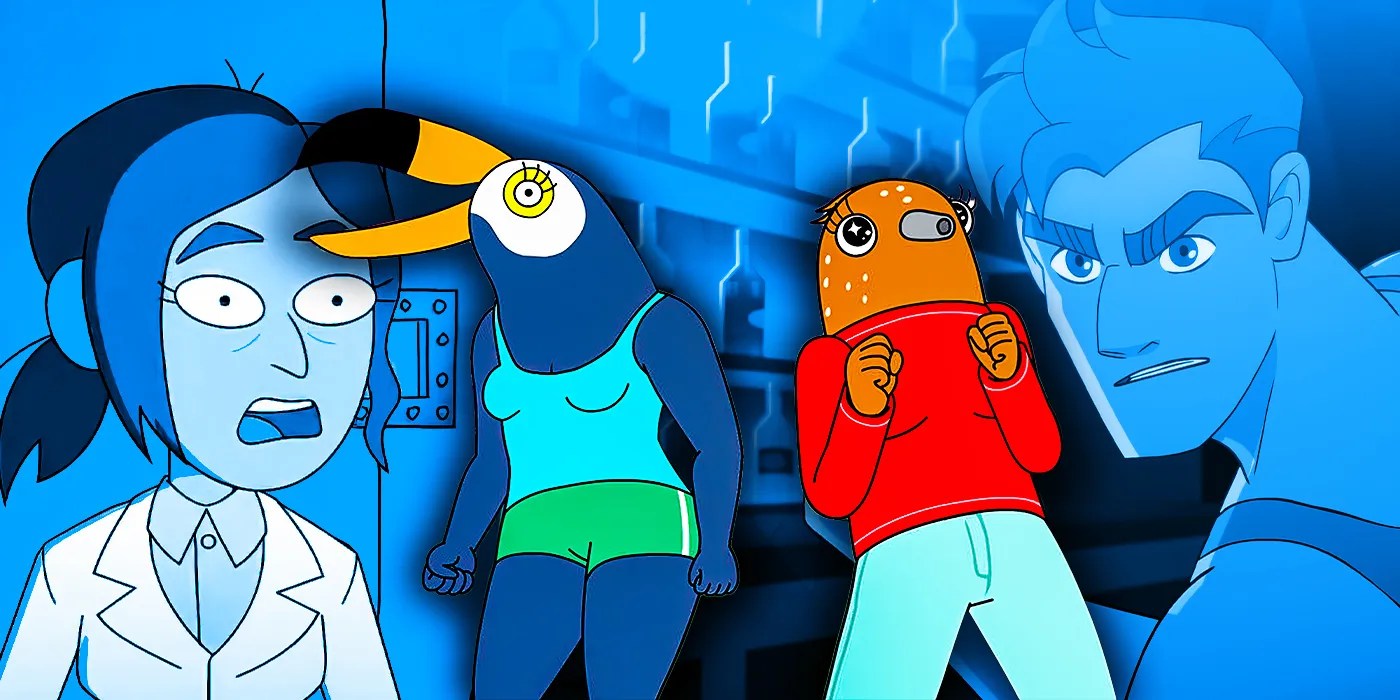In the fast-paced world of television, not every series that captures the audience's attention manages to survive the cut. The phenomenon of a series canceled can leave fans heartbroken, wondering what went wrong. Shows that once had promise and captivated viewers can suddenly find themselves on the chopping block, often due to a myriad of factors that extend beyond the screen. As viewers invest emotionally in their favorite characters and storylines, the news of a series canceled can feel like a personal loss. It's a stark reminder of the impermanence of entertainment, where only the most successful series thrive in an ever-competitive landscape.
Television networks and streaming services are continually evaluating their programming, making decisions based on ratings, production costs, and audience engagement. A series canceled can stem from a lack of viewership, negative critical reception, or a change in network strategy. Understanding these dynamics can provide insight into the difficult decisions that lead to the end of beloved shows.
In this exploration of the series canceled phenomenon, we will delve into the reasons behind these decisions, the impact on fans, and some notable examples of shows that met an untimely end. Join us as we navigate the bittersweet landscape of television cancellations, examining how they shape both the industry and the loyal viewers who are left in their wake.
What Factors Lead to a Series Canceled?
When a network decides to pull the plug on a show, several elements come into play. Here are some of the most common factors that contribute to a series canceled:
- Low ratings and viewership numbers.
- High production costs that don't match audience returns.
- Changes in network strategy or direction.
- Negative critical reception or fan backlash.
- Creative differences among the production team.
How Do Ratings Affect Series Canceled Decisions?
Ratings remain one of the most critical metrics in determining the fate of a television series. Networks rely heavily on viewership numbers to gauge a show's popularity and profitability. If a series consistently underperforms in terms of ratings, it becomes a prime candidate for cancellation. This is particularly true in competitive time slots where networks prefer to invest in programs that attract larger audiences.
Is Viewer Engagement More Important Than Ratings?
While traditional ratings are essential, the rise of social media has introduced a new dimension to viewer engagement. A series that generates buzz online may have a passionate fan base that can influence a network's decision. Networks are increasingly considering factors such as social media interactions, fan campaigns, and merchandise sales, which can sometimes save a series from being canceled.
What Are Some Notable Series Canceled Prematurely?
Throughout television history, numerous series have faced untimely cancellations despite their potential. Here are a few examples of shows that were unexpectedly pulled:
- Firefly: This cult classic from Joss Whedon is often cited as one of the most significant series canceled too soon.
- My So-Called Life: Despite critical acclaim, this show struggled with ratings and was canceled after just one season.
- Terriers: A critically praised series that failed to find its audience, leading to its cancellation after one season.
- Freaks and Geeks: This iconic series developed a dedicated following, but was canceled after one season due to low ratings.
What Is the Impact of a Series Canceled on Fans?
The cancellation of a beloved series can have a profound impact on its audience. Fans often feel a sense of loss and frustration, particularly if the show ends on a cliffhanger or unresolved storyline. Many viewers take to social media to express their disappointment, sometimes leading to campaigns to revive the series.
Can Fans Influence a Series to Be Revived After Being Canceled?
In recent years, there have been instances where fan campaigns have successfully resurrected canceled shows. The power of social media has allowed passionate viewers to unite and advocate for their favorite series, prompting networks to reconsider their decisions. Notable examples include:
- Brooklyn Nine-Nine: After being canceled by Fox, the series was picked up by NBC following a massive fan outcry.
- Community: Despite numerous cancellations, the show was revived multiple times, largely due to its devoted fan base.
- Veronica Mars: A successful Kickstarter campaign led to the revival of this beloved series for a movie and later a new season.
Are There Differences Between Network and Streaming Series Canceled?
Yes, the cancellation dynamics can vary significantly between traditional networks and streaming platforms. Network television is often more ratings-driven, while streaming services may consider factors such as viewer retention and engagement over time.
What Does the Future Hold for Canceled Series?
Despite a series canceled, the future isn't always bleak. Many shows find new life through syndication, streaming platforms, or fan-driven revivals. The enduring love from fans can lead to reboots, spin-offs, or even new seasons, offering a glimmer of hope for those who mourn the loss of their favorite series.
Can Canceled Series Find Success in Other Formats?
Indeed, many canceled series have transitioned into other formats, such as movies, graphic novels, or web series. This allows fans to continue enjoying the characters and stories they love, even if the original show is no longer airing. The adaptability of storytelling in the modern age provides opportunities for series to live on in different forms.
**The Unfolding Story Of Beth Fritzl: A Life Beyond Darkness**
Unveiling The Mystique Of Traitors Dan: A Tale Of Loyalty And Betrayal
Unveiling The Extraordinary Journey Of Johnie Izzy


